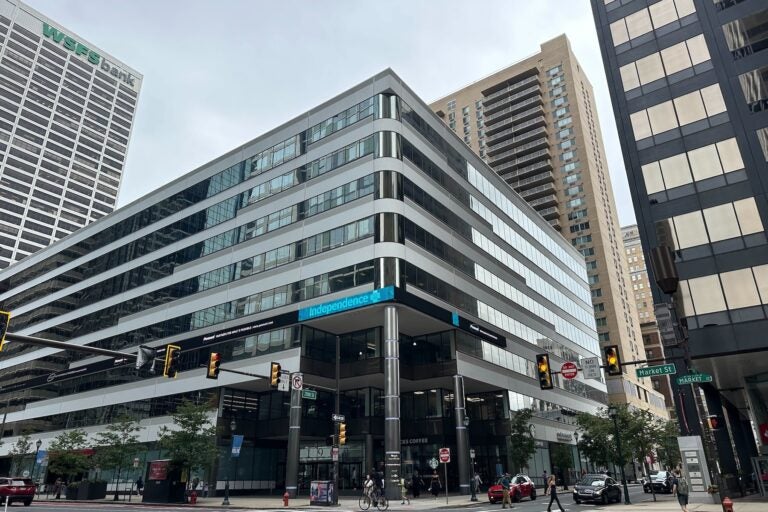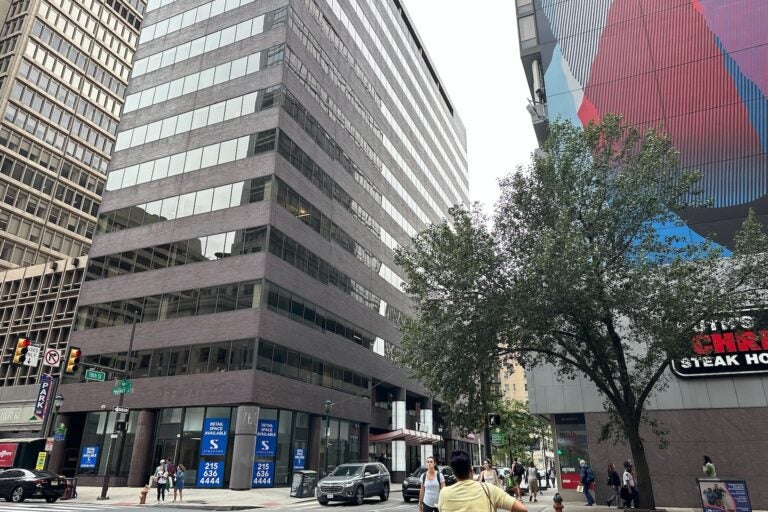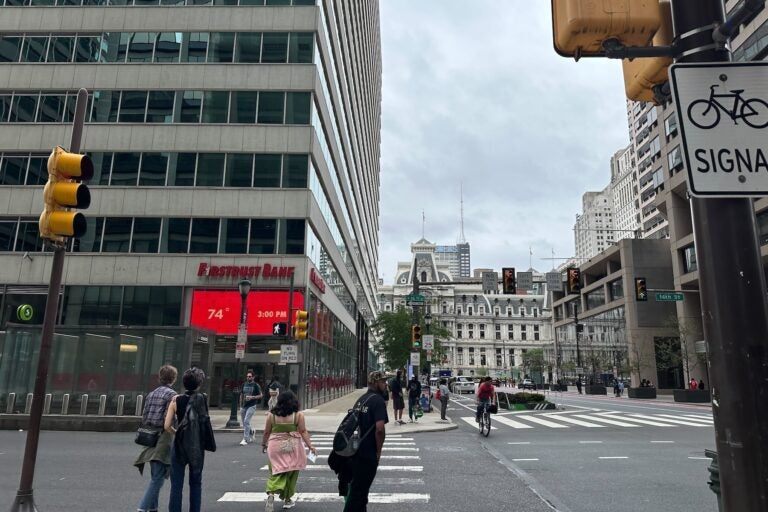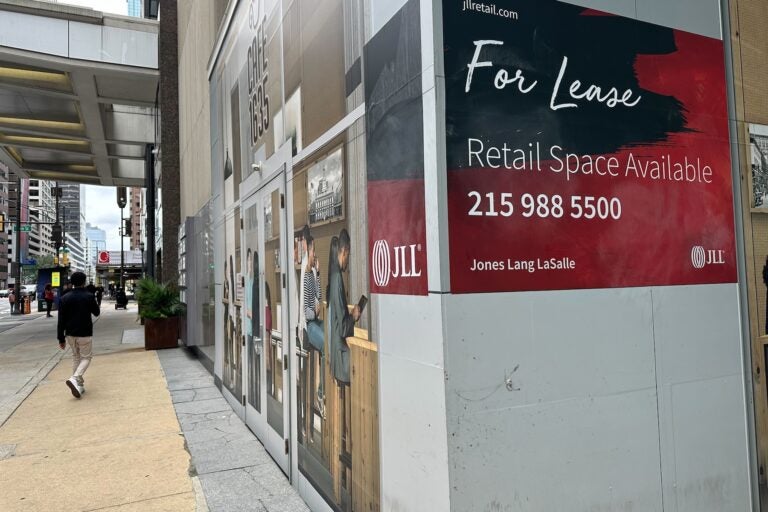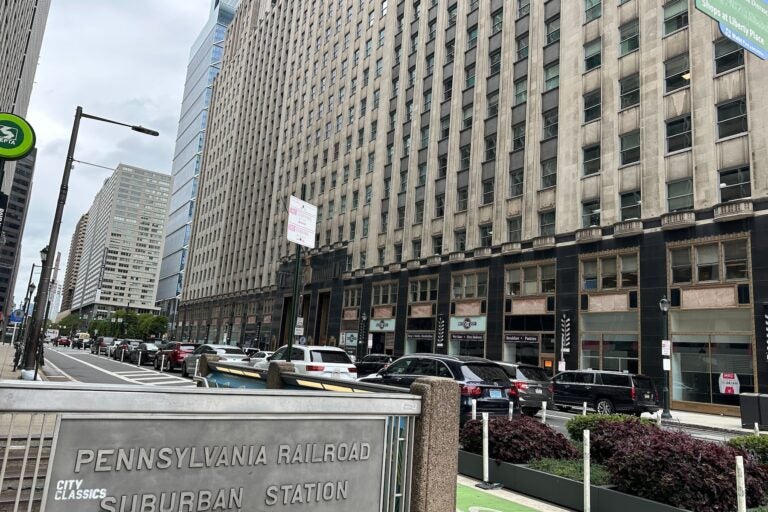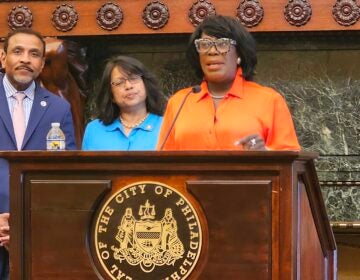Why some of Philly’s tallest buildings will pay smaller property tax bills in 2025
About half of the city’s 100 most valuable commercial properties have lower tax assessments for 2025, according to a WHYY News analysis.
From Philly and the Pa. suburbs to South Jersey and Delaware, what would you like WHYY News to cover? Let us know!
Some of Philadelphia’s landmark office skyscrapers have declined in value, resulting in lower property taxes for their owners next year.
The market value of one Center City office tower at the corner of 16th and Market streets dropped by 20% in the past year, according to a WHYY News analysis of the city’s 2025 property tax assessments.
That means its owner, American Real Estate Partners, will be paying less to the city of Philadelphia and the school district for a 39-story tall building in 2025.
Built in the 1980s and renovated in the mid-1990s, the building is known as a Class A office space, which is the most expensive per square foot office building in the real estate industry.
The city estimates it’s worth $132 million in 2025, down from $167 million in 2024.
Its property tax bill is estimated to be closer to $1.8 million in 2025 – a savings of $400,000 in just one year – compared to $2.2 million in 2024. The property tax rate has not changed.
McLean, Virginia-based American Real Estate Partners did not respond to an interview request for this story.
The remote work effect
Real estate industry experts suggest that’s likely because there’s vacant office space on 15 out of 39 floors as companies adopted remote policies for employees during the COVID-19 pandemic.
“It’s not a secret that commercial property values across the board, not just in Philadelphia, are seeing reductions and that’s largely due to less folks in the office right now, people working remotely,” said James Vandermark, partner at law firm White and Williams.
The more vacant space inside of a building — whether industrial, office or retail — the less valuable that property may be without any changes to its structure or exterior.
“The valuation [of a commercial property] is based on the income that it’s producing,” Vandermark said.
State law prohibits the city of Philadelphia — or any municipality across Pennsylvania — from taxing commercial building owners at a higher or lower rate than residential properties.
But these new values for that Market Street office tower are a big change compared to the past few years: $112 million in 2017, $148 million in 2018, $158 million in 2019, $163 million in 2020, 2021, 2022, then $167 million in 2023 and 2024. Those fluctuations are not uncommon.
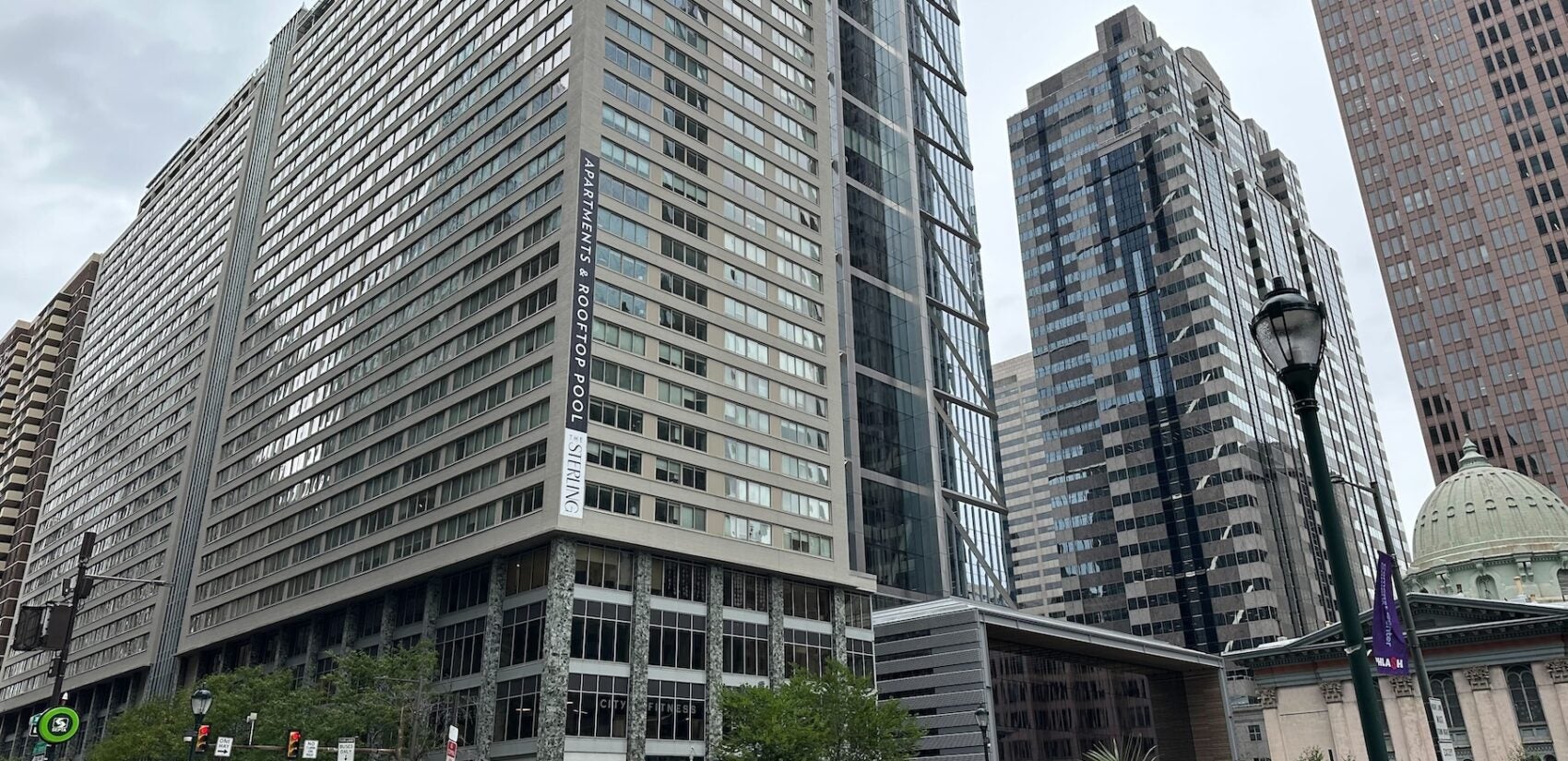
WHYY News analyzed the city’s 100 most valuable commercial properties after removing tax-exempt entities such as hospitals, universities and nonprofits. Out of the 100 most valuable tax assessments: 47 were reduced, 22 increased in value and 31 didn’t change.
The city of Philadelphia estimated that the assessed value of office buildings alone dropped by nearly 6% — or $635 million — between 2024 and 2025. But that’s before any property owners appeal their tax assessment valuation.
Property owners are supposed to be informed of new values each March, and then have until early October to appeal. This year, the data crunching took until August but the Oct. 7 deadline remains.
“Each individual commercial property owner will need to review and assess the accuracy for their individual property,” Vandermark, the real estate tax attorney said.
Appealing tax assessments
In 2019, about 700 Philadelphia commercial building owners appealed their 2017 tax assessments in court after the city reassessed 41,730 commercial properties, increasing the taxes collected in 2018 by $118 million. That’s because none of the 538,380 residential properties were reassessed that year.
But that same state law that doesn’t allow residential and commercial to be taxed at different rates also applied in this case.
The city of Philadelphia claimed in court that the 2017 tax reassessment of commercial properties only was to correct years of those buildings being “grossly under-assessed.”
Ultimately, building owners won their court challenge, securing an order for the city and school district to repay $50 million in both real estate property in addition to use-and-occupancy taxes.
In 2021, a judge ruled that the city assessing commercial properties alone was against the state constitution, violating what’s known as the uniformity clause. In 2022, the city lost its final appeal to the state supreme court.
But that entire court battle was about market values reassessed back in 2017.
A planned tax reassessment in 2019 was pushed back to 2021 for computer system upgrades. That was before the COVID-19 pandemic began in 2020. The city didn’t reassess properties until 2022.
Now, the commercial building market has shifted again towards hybrid work schedules instead of only remote work as was more common during the height of the COVID-19 pandemic.
Some office leases previously under contract during the era of remote work have since expired and some companies have leased either smaller spaces or no office at all.
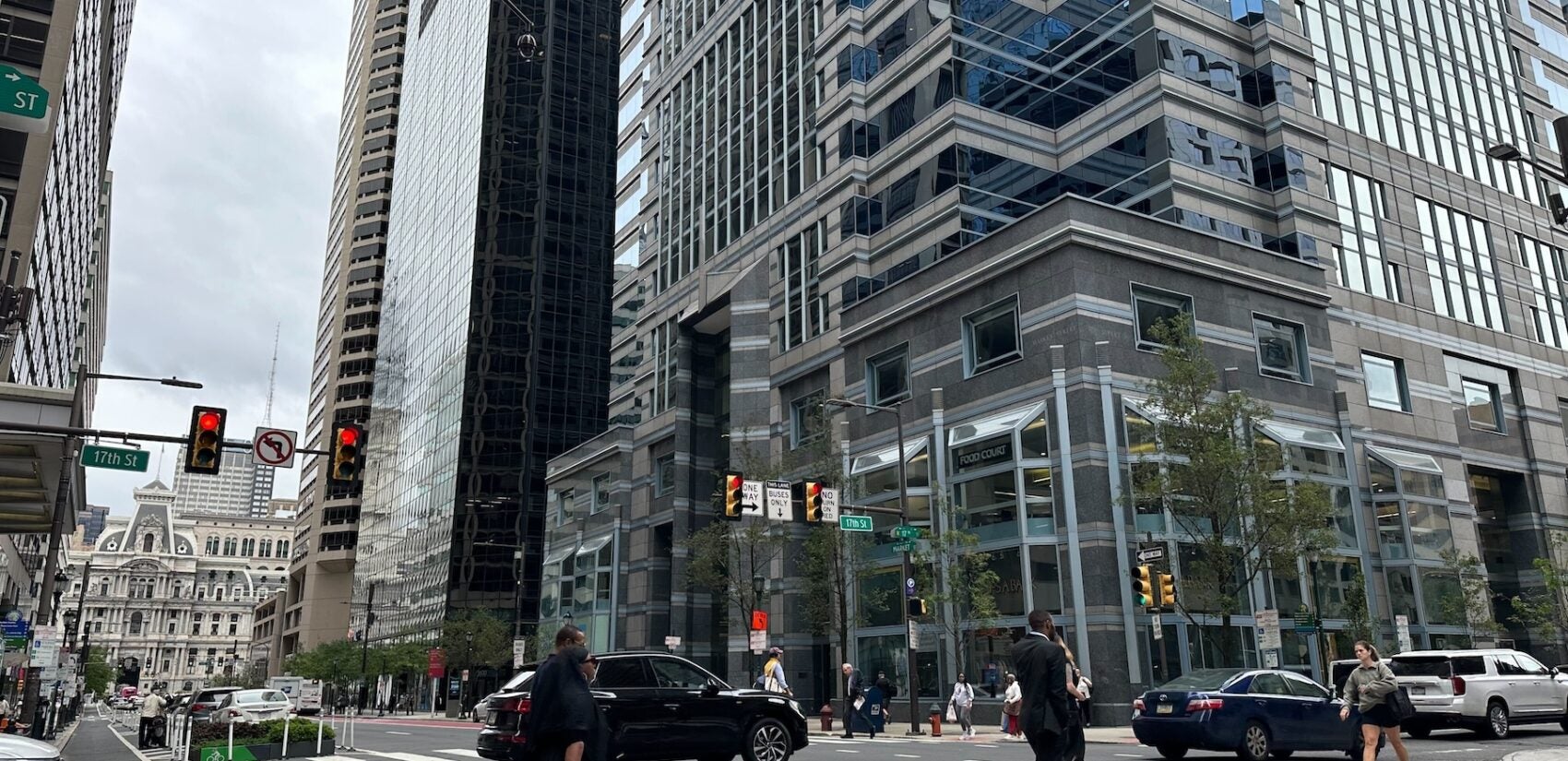
For a 32-story tall office tower sitting at the corner of 17th and Market Streets, its assessed value has dropped 13% in 2025, to $157 million.
At least five floors in the tower have office space for rent, according to marketing materials for the property built in the late 1960s. That’s led to its owner struggling to pay the mortgage.
In February, building owner Shorenstein Properties sought to renegotiate its $188 million mortgage, according to the Philadelphia Business Journal.
Philadelphia-based Reinvestment Fund, which helps rebuild communities nationwide, coincidentally leases office space in that building.
Emily Dowdall, president of Policy Solutions at Reinvestment Fund, noticed vacant office spaces on her way up the elevator and lack of ground floor retail leases in recent years.
“Lower tax bills are going to come as a huge relief right now, especially to owners who are facing the challenges of high interest rates, falling rents and occupancy rates,” Dowdall said.
Residential is more valuable
In terms of redevelopment potential and economic development, lower tax bills can free up cash for building owners to re-invest into the space to attract more tenants, she said. Or it could encourage the sale of a building since it’s been discounted. So it’s not necessarily a bad thing for the economy.
“I don’t see these falling commercial assessed values as any sign of a doom loop. It’s a resetting of values that’s reflecting the reality of the current market,” she said.
But for next year, taxpayers may notice that, on average, commercial building owners will be paying smaller bills while residential property owners could be paying more than usual.
For example, most Philadelphia homeowners will see a property bill increase, even though the tax rate hasn’t changed.
“A common trend across the country is that we’re seeing commercial values decline as we see residential values increase, which means more of a burden on individual taxpayers who may have a harder time than larger commercial property owners,” Dowdall said.
To keep homeowners in their properties despite rising market values, there’s a slew of programs. For commercial building owners, their only option is to appeal. And as an economic core of the city, there’s a shared benefit to keeping Center City alive, she said.
“Longer term stabilizing the Center City real estate market is in everyone’s best interest,” she said.

Get daily updates from WHYY News!
WHYY is your source for fact-based, in-depth journalism and information. As a nonprofit organization, we rely on financial support from readers like you. Please give today.




